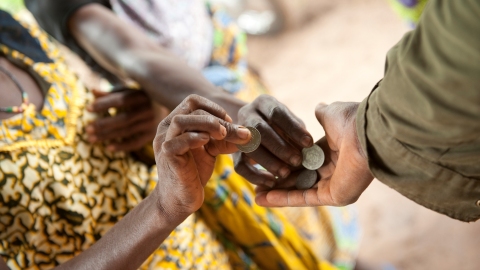
It is now 75 days before the 21st Conference of Parties (COP21), World Paris Climate Conference 2015, bringing the world together to achieve a legally binding and universal agreement on climate, with the aim of keeping global warming below 2°C.
By Tinashe Masimbe
The question for many developing nations is how they are going to archive Zero emissions by 2050, with inadequate funding for effective adaptation and mitigation to climate change.

Climate finance is required to allow developing nations to undertake mitigation and adaptation activities in the long term.
This funding is dedicated to the most vulnerable nations and has to be predictable and adequate according to the United Nations Framework Convention on Climate Change.
Dr Richard Munang, United Nations Environment Programme (UNEP) Africa Regional Climate Change Programme Coordinator states, effective adaptation efforts in Africa are crucial, and they should be supported financially and politically by many different stakeholders in Africa and around the world. Climate finance should be directed as a high priority to the most vulnerable developing countries.
Intergovernmental Panel on climate change states, Africa is a “vulnerability hot spot” for climate change, with limited adaptive capacity due to high levels of poverty. There is no clear vision how Africa can source these resources to effectively adapt from climate change and to archive Zero emission target by 2050.
In the ongoing climate talks in Bonn, Germany the G7 renewed a commitment of $100 billion a year in climate finance with the intention of increasing more funds and how donor countries would source these funds and investing in low carbon projects.
- Chamisa under fire over US$120K donation
- Mavhunga puts DeMbare into Chibuku quarterfinals
- Pension funds bet on Cabora Bassa oilfields
- Councils defy govt fire tender directive
Keep Reading
The truth is this commitment needs to be put under serious consideration. The “$100 billion a year” commitment is not clear from Copanhagen and the United Nations climate conference in Cancún. We need clarity in Paris this year.
According to Africa’s Adaptation Gap Report, traceable funding disbursed in Africa for climate change adaptation for the years 2010 and 2011 amounted to US $743 million, through bilateral channels, and US $454 million, through multilateral channels.
Adaptation costs are expected to range between US $7 billion and US $15 billion a year by 2020. To meet these costs, funds disbursed annually need to grow at an average rate of 10 to 20 per cent a year from 2011 to the 2020s. Funds have to be scaled up by as much as 10 per cent each year from 2020 onwards.
Article 3 and 4 of the United Nations Framework of Climate Change (UNFCCC) states that developed countries should take the lead to combat climate change and provide “new additional” financial resources to mitigation of carbon emissions and adaptation to the impacts of climate change.
The actual amount of climate finance provided by developed countries so far has been relatively small. Over the years emissions have rose significantly for developing nations. United Nations Secretary General’s High Level Advisory Group on Climate Change Finance in 2010 report concluded that adaptation spending was a priority in Africa.
A Climate Finance Update in North America stated that, “Some of the most vulnerable developing countries receive very little: For instance, Haiti and Zimbabwe, both in the top three of the world’s most vulnerable countries according to the Climate Change Vulnerability Index, currently receive only USD 6.6 and USD 6.9 million respectively for adaptation from dedicated climate funds.”
According to International policy analysis, clear accounting rules for international climate finance are crucial both for the sake of transparency and for generating political trust between countries, as well as for making sure that financial flows are actually adequate to the task of achieving sufficiently strong emission reductions and adaptation to the impacts of climate change.
The IPCC says that, Africa will face significant challenges in adapting to climate changes projected to occur in mid century as negative impacts of global warming are increasingly felt and therefore diminishing crop yield of potential major crops.
Zimbabwe a nation which depends on rain fed crops will be left wanting. As Africans we need adequate financial resources to effectively adapt to climate change as we are set to get the rougher end of the stick.
Zimbabwe needs adequate and predictable financing and technology transfer to support climate change mitigation and adaptation programmes. Under the United Nations Framework Convention on Climate change, Zimbabwe needs assistance in access special multi-lateral funding so that it benefits from funding mechanisms such as Adaptation Fund and REDD+ which would go a long way.
There is a pressing need to mobilize climate finance to address developing nation’s limitations to deal with climate events, as well as to deal with the future of climate change.
If the world is looking forward to a future of Zero Emissions by 2050 there is need to address gaps, with high prioritization and transparency in climate finance for developing nations.
Tinashe Masimbe is a Junior Expert in Climate Change Adaptation and Disaster Risk Reduction, Climate Tracker for the Adopt a Negotiator program











